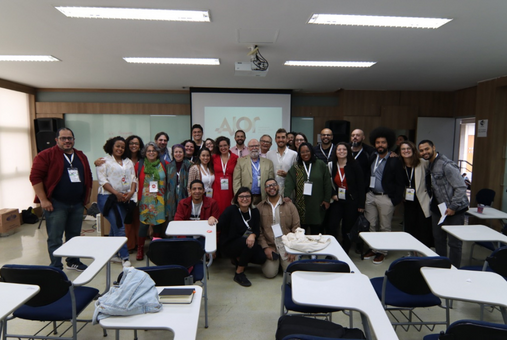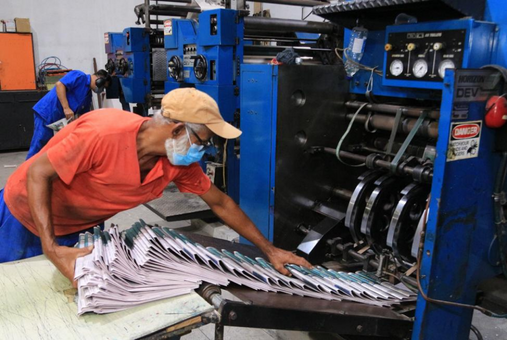
A tree thought of as the "queen of the Amazon," the “sumaúma” or kapok tree is one of the symbols of this tropical forest that covers a large part of South America. This icon of Amazonian magnificence gives its name to a journalistic project that publishes feature stories and articles in Portuguese, Spanish, and English. Its goal is to amplify the voices of the forest and "to refocus the world," as Eliane Brum, one of the founders of Sumaúma, said in an interview with LatAm Journalism Review (LJR).

Quinto Elemento Lab, Conexión Migrante, Agência Pública and ((o))eco are some of the new media partners of the Report for the World journalist support program. In its first year of operation in Brazil, it managed to boost journalistic coverage of issues related to the Amazon region.

Sixteen journalists from Brazil’s public communication company (EBC, by its Portuguese acronym) handed in written statements describing humiliating situations taking place in the company on a daily basis, since the arrival of Jair Bolsonaro as Brazil’s president. Among them are workplace harassment, censorship, a climate of fear due to persecution at work, devaluation, and a lack of dialogue.

Coar is a fact-checking project focused on Brazil's Northern and Northeastern regions, where there is a higher incidence of cities without news outlets -- news deserts. With limited resources, Coar relies on partnerships with radio stations, TV stations, and regional websites to make news checking more accessible.

Since its inception, the Brazilian Association of Investigative Journalism (Abraji) has remained faithful to its founding principles: professional training, defense of freedom of expression, and the right to access public information. Abraji has not only become an organization of professional journalists with an important voice in the Brazilian media scene, but also a standard for associations in other countries.

Just over a year after being founded by a group of 30 Brazilian news organizations, the Digital Journalism Association (Ajor) recently surpassed the 100-member mark, an achievement for the entity dedicated to strengthening digital journalism in Brazil. The growth of the association highlights the diversity of the sector in the country, which Ajor intends to help be recognized also for its economic importance.

The second edition of the Jornada Galápagos de Jornalismo is open until Sept. 19th. In this edition, which takes place three years after the first one, the program includes more hands-on workshops and more time for interaction between participants and speakers.

The diversification of funding sources and the active participation of the State are fundamental elements to guarantee the economic viability of news outlets. Specialists gathered during a panel at the International Congress of the Brazilian Association of Investigative Journalism (Abraji, by its Portuguese acronym) defended a change of paradigm in favor of a diversification of sources of income.

In Brazil, where 43.2% of the population identifies as white and 55.7% as Black, newsrooms are composed of 77% white employees. Research shows that a lack of diversity affects news production and journalists themselves.

In 2022, the two oldest cooperatives of Brazilian journalists still in operation will reach 15 years of uninterrupted activity: Tribuna Independente and Portal Desacato. These achievements, worthy of celebration, happen through a daily dose of resilience and the financial effort of journalists who found in managing themselves a solution to survive in the market.

The second most popular social network for journalism consumption in Brazil, WhatsApp has become the focus of the distribution strategy of digital native news outlets in Brazil. They see an opportunity to establish a direct connection with the public, without depending on the algorithm of other platforms.

Online harassment of journalists in Brazil has intensified in recent years due to the potential for exposure created by social media and the institutionalization of these attacks. President Jair Bolsonaro’s attacks against journalists have naturalized this type of violence in these online platforms, and those who should support these professionals are guilty of lack of accountability, reveals a study on violence against journalists on social media.